The Invisible Mourner
Ken Harvey
Gordon’s cold had gone deeper, his breathing raspy and heavy. He had just made an appointment to see his doctor later that afternoon when Ellen Joyce, who worked in the rectory at St. Luke’s Church, phoned him. She told him that at Sodality’s Brunch that morning, Father Jim had stood to thank the women for their service when he was stricken by a massive heart attack. He died before the ambulance arrived.
“It’s hard to know what to say,” Gordon said, wondering how he had managed to put the words together. His body grew warm as if his cold had spiked a fever. He removed his wire-framed glasses and pressed his fingertips against his eyelids. When he heard Ellen sniffling, he tried to think of something comforting to say, but all he could come up with was “Who else have you called?”
She named five people, all officers of the church, before she said “and you,” which relieved Gordon since it was clear she hadn’t assumed that he was Jim’s tacit next-of-kin.
“He didn’t have any relatives, you know,” Ellen said. “Just a cousin out in Arkansas he hadn’t talked to for a long time.”
“Really?” Gordon said, though he knew about the cousin.
“He was in better shape than most people half his age,” Ellen said.
“He was.”
“Father Buchanan asked you to meet him to pray in half an hour.”
“All right,” Gordon said. God, how he wanted to be alone. He didn’t want to pray with Father Buchanan, not now.
“I guess I should walk down to DeLucio’s and order some flowers,” Ellen said. “I’d thought of sunflowers, because Father Jim was always bright, but then I thought that sunflowers were really a bit too big for him and the occasion.”
Gordon was grateful that Ellen had brought up the subject of flowers. As a funeral director, he knew the choice of flowers could say a great deal about one’s relationship with the deceased: lilies for friendship, hydrangeas for heartfelt emotion, roses for love, chrysanthemums for fidelity. Of course, not many people understood the symbolism anymore. They usually bought flowers for their sheer beauty. Gordon wondered what kind of bouquet he should send, or if he should send one at all. He proposed to Ellen that they send something together.
“I think Father Jim would like that,” he said.
“Oh,” said Ellen. “You’re right. I think he would.”
Gordon understood Ellen’s hesitation about the sunflowers. Jim was generally a happy man, but no one in the parish considered him exuberant. His sermons were soothing rather than inspiring. “Maybe some yellow roses and daises—something like that.”
“That makes sense,” Ellen said.
Gordon said goodbye. When he stood up from his desk, he felt dizzy. The room seemed bigger; he couldn’t remember taking up so little space in his own office. He leaned against the wall, next to the window. He resisted the urge to grab the curtain and pull it down. Instead he took the curtain in his hand and studied the slender tree branches in the pattern, the red beak of the yellow-tailed birds, the variegated green of the leaves. He had picked out the fabric with Jim.
He’d last seen Jim Sunday night when they’d had dinner at Gordon’s place and watched The Remains of the Day, one of Jim’s favorite movies. Gordon tried to remember a clue that Jim might have felt ill, but he had eaten well and seemed engaged in the film. They had kissed for a while on the sofa. Now Gordon regretted he hadn’t been more passionate, that he hadn’t run his finger along the contour of Jim’s ear, their signal.
But for now Gordon had to stop thinking about Sunday night and somehow keep a professional calm. A funeral director was used to death. It was a business. He had to treat Jim’s death like a business.
The envelope. That’s what a funeral director would do. He’d tend to the wishes of the deceased.
He opened the top drawer of the cherrywood file cabinet and removed the manila folder that read, “Personal.” Inside was an envelope with the words TO BE OPENED IMMEDIATELY UPON MY DEATH.
Gordon returned to his desk and cut the seal. Jim had given him the envelope a few years ago, along with a gold-plated letter opener with Gordon’s initials engraved on the handle. He lowered his glasses and unfolded the letter:
Dear Gordon:
I trust that these requests will not impose an undue burden on you at the time of my death, but I would greatly appreciate it if you would tend to a few matters.
My will can be found in the locked metal box on the upper shelf of my closet. The key is in a small manila envelope beneath the box.
My clothes (not much, I’m afraid), including my shoes and overcoat, may be donated to the thrift store on Monroe Street. Ellen, if she is still alive, volunteers there and can help you facilitate the delivery.
And finally, please remove some personal papers in the bottom drawer of my bureau.
I appreciate your assistance in these and other matters related to my passing.
Yours sincerely,
The Reverend James C. Connelly
The lack of affection in Jim’s words stung. The last time Gordon had felt so alone was when he forgot his lines in his high school play and no one gave him a cue. You’re just going to leave me here? he’d wanted to scream then, as now. His breathing became uneven; he wrapped his arms around himself and felt his body quiver. But he slowly calmed when he realized that Jim intended to be helpful in his formality, that it would allow Gordon to show Father Buchanan the letter: a passport, if needed, for entering Jim’s room.
He put the envelope in the inside pocket of his gray raincoat, touching it occasionally as he walked to the church.
*
“I think you should bury him,” Father Buchanan whispered to Gordon. They were kneeling in front of the votive candles in the sanctuary. Some parish nuns had huddled in a pew on the other side of the altar, working each black bead on their rosaries as if they were knitting a sweater for the deceased. “He would have wanted you to care for him. I don’t feel comfortable handing him over to anyone else.”
Gordon looked at the pastor, whose bristling white hair was always the same crew cut length. He had thin, delicate fingers and bony arms; his face, long and narrow, was flushed, whether from light flickering off the red glass candleholders or emotion, Gordon couldn’t tell.
“I think there are other funeral directors in town who would consider it an honor,” Gordon said. He watched the shadows from the flames flutter on the statue of the Virgin. He studied her faded blue robe, the occasional nick in the plaster. He recalled that when he was a child at St. Luke’s, some forty years ago, the robe was a smooth, brilliant blue.
“This can’t be the first time you’ve buried someone you’ve known,” Buchanan said. Sometimes Gordon saw him smoking a cigarette behind the rectory, his cheeks drawing in, an expression of disappointment in himself. He was in his seventies, and it was generally assumed that he would die before he retired. No one ever expected that Father Jim would leave St. Luke’s before him.
“Can I take the absence of an objection as consent?” Buchanan asked. Gordon had known Buchanan all his life. Father Buchanan had baptized Gordon. He’d served him his First Communion. He’d been there for him when his parents died. Buchanan hadn’t said anything specifically reassuring then, just the usual references to the Lord working in mysterious ways and how blessed are those who mourn. Gordon imagined that Buchanan’s tone didn’t vary at all when reciting these lines to the bereaved, and he felt some solace knowing he was one of hundreds of parishioners who had sat in the same chair hearing the same words spoken in the same way.
Gordon decided that he would perform the burial. For Buchanan, yes, but also for Jim, who Gordon began to think might have wanted it this way.
“I’ll have my assistant pick up the body,” he said.
He crossed himself and left the church.
*
Ellen was sorting through the mail when Gordon arrived at the rectory. Housekeeper, cook, receptionist: she did it all at St. Luke’s. You called Ellen Joyce first. Like Gordon, she was often in the crosshairs of death and grief.
“I’m off to the florist,” she said.
“Let me give you some money,” Gordon said. He gave her thirty dollars. She flattened the bills before putting them in her pocket. She offered no pay me later, no I’ll put it on my credit card and then tell you the amount. From her pocketbook she produced a compact umbrella.
“Are you taking care of the arrangements?” she asked.
Gordon told her he was; she told him she’d have the flowers sent to his place.
“I need to get a few things from his room,” Gordon said. From his sports coat pocket he took out the envelope . “He left this letter for me.”
“The door is unlocked,” Ellen said, waving the letter away. “It’s always unlocked.”
After Ellen left, Gordon went upstairs and gently pushed open the door to Jim’s room. The bed was made perfectly, not a wrinkle. A Bible and an old hardcover edition of Persuasion were on his bedside table. Photos of Jim surrounded by parishioners lined the top of the bureau in front of a large mirror. In the corner was Jim’s pair of yellow Converse high tops. Gordon decided to bury Jim in them. The casket would cover his feet.
Gordon walked into the bathroom and ran his fingers along the toothpaste tube, rolled from the bottom. He squirted some liquid soap into his hands, then turned on the water in the sink, wet his face, and lathered his cheeks. As he rinsed, he tried to summon the strength he would need the next few minutes, but was soon overcome by a coughing fit that seemed to emanate not from his lungs but somewhere deeper.
Gordon began gathering Jim’s clothing for the wake. He took one of the five crisply pressed pairs of black pants folded over wooden hangers in the closet. He found a black shirt and a white clerical collar. For the first time, he thought he might be strong enough to carry off the wake and the funeral. But then he opened the top drawer of the dresser and saw six pairs of black socks, neatly folded on top of each other, as snug as eggs in a carton. He had to sit on the bed for a few moments.
Finally Gordon kneeled to open the bottom drawer. Jim’s “personal papers” were a stack of magazines, arranged by date of publication. He’d always liked that Jim’s tastes in pornography were for hairy men who were much like Gordon himself. He placed the magazines in the paper bag along with the yellow sneakers. He put the clothes over his arm and left the rectory.
Before he opened the car door, Gordon lowered his head into the cradle of his arm and smelled Jim’s shirt. Old Spice, just like Gordon’s father used to wear. He had kidded Jim about this once, after they’d known each other long enough to tease.
*
They had met fifteen years ago in the function room in the rectory basement when the church council had held a reception in honor of Father Jim’s arrival at St. Luke’s. Gordon had hung around to fulfill his obligations on the cleanup committee, and was looking for people to take home some leftover food: tea cakes, bacon-wrapped asparagus, cucumbers with sour cream, petits fours, triangular egg and ham salad sandwiches with the crusts removed.
He had introduced himself to Jim, offering to assemble a plate of food to bring back to the rectory. Jim was a solid man with a strong body, and had already volunteered to coach the boys’ basketball team. His brown hair swept across his forehead.
“We’re really glad you’re here, Father,” Gordon said.
“I am too. I never quite fit in at my last parish out in San Diego. It wasn’t me. I grew up in Waltham.”
“I grew up right here in Lynn,” Gordon said, thinking that Waltham people weren’t that much different from Lynn people. Lynn was bigger, and had the GE plant, but he’d been to Waltham a few times and it reminded him of Lynn, with its vacant factories, its gazebo in the center of the Commons, its old houses, surely magnificent in their day, now covered in pastel siding.
“You’re a hometown boy,” Jim said.
“I lived in New York City for a very short time,” Gordon said. “That’s where I felt out of place.”
Gordon talked about life in Lynn in the sixties; Jim talked about Waltham a decade earlier. Gordon liked him, felt at ease with him, something he’d never experienced with any of the other parish priests, certainly not with Buchanan.
“It’s been great to meet you.” Jim touched his elbow when he spoke.
“I should help with the cleaning up,” Gordon had said, his hand on Jim’s shoulder just for a moment.
Jim suggested they might talk again some other time. He didn’t mean to be forward, he explained, but he wanted to hear more about Gordon’s family and the parish.
Some other time was after Sunday Mass the next weekend. Gordon joined the end of the line that filed out of the church to greet Jim on the steps. They quickly clasped hands.
“Come walk with me,” Jim said. “I’m done for this morning It’s a gorgeous day. Wait here while I get out of my robe.”
Gordon watched the line of cars leave the parking lot. He locked his fingers and raised his arms over his head. He checked to make sure his shirt was buttoned. He breathed into his cupped hands to smell his breath.
“There,” came a voice from behind him. “Let’s walk down to the beach.”
Gordon had expected a stroll around the church grounds. The beach was a good mile away. What would they talk about?
“Tell me why you took up undertaking,” Jim said.
Jim’s directness surprised Gordon; it felt a little like an interview question. Gordon told Jim about his father, who’d been a funeral director in Lynn for thirty years, then about his parents’ deaths. A fire at his aunt’s house in New Hampshire while he was still living in New York City.
“They were just there for the weekend,” Gordon said.
“I’m so sorry,” Jim said.
“I came back here to take over the business. It wasn’t hard to leave. I was never really cut out for New York.” Gordon didn’t tell him that he’d arrived in the city planning to spend weekends on Fire Island and weeknights hanging out in gay bars, but he soon learned that the gay scene had little place for a guy without a swimmer’s build and whose skin had the faintest scars from teenaged acne.
“I knew I didn’t have my father’s gift for saying just the right thing at just the right time,” Gordon said. “I’d let customers live with their grief while they sat in my office. I never knew how to respond, but it worked out okay because people felt like I was listening to them.”
Gordon was relieved he was done. He looked down and saw that Jim was wearing high-tops. Yellow high-tops. He suppressed a grin.
They walked beneath a railroad bridge, frightening a slew of pigeons that started flapping loudly. The sound reminded Gordon of how he used to help his mother shake out blankets in the backyard. He returned his attention to Jim. “Your turn.”
“I was the only child of devout Catholic parents.” He said the church helped his family out when his father lost his job at the lumberyard. The ladies dropped off groceries on the back porch without ringing the bell. The parish had even paid their rent for half a year. Jim felt some obligation to pay back, so he went to seminary. Besides, he could never see himself married, so what else was there for him to do?
Gordon and Jim spoke again. And again. Coffee at Mrs. Foster’s Donuts. A drive around Lynn Woods. Phone calls.
Then one day Gordon said, “I know of a nice little restaurant in Rockport, about an hour or so away.”
The following Saturday, Gordon went to Mass in the late afternoon. He waited for Jim in the parking lot. The foliage was just past its peak, with a few leaves here and there still vibrant with color but surrounded by muted gold and rust. The air smelled smoky. It reminded Gordon of the opening days of school. He tended to see fall, not spring, as full of possibility.
He couldn’t think of anything to say in his white Ford Escort that he’d washed that morning. He put on the classical station, but when it started to fade as they rode farther from Boston, he shut off the radio. He tapped his foot on the gas pedal while Jim set his wristwatch. Gordon drove into the breakdown lane and stopped. He covered his face with his hands.
“I need to know what’s going on here,” he said.
“I don’t know,” Jim said. “This is all new to me.”
Gordon leaned over and kissed him.
*
Gordon ended a meeting at the funeral home with a widower and went to the doctor for his cold. He was winded by the time he reached the office on the second floor. He’d started seeing Dr. Bloom right after high school, and Bloom’s brother, who also worked out of the office, had been Gordon’s pediatrician.
He stood at the doorway, looking for a place to sit. Half a dozen kids played on the floor, flipping through Highlights magazines and knocking down building blocks in primary colors as soon as they’d arranged them on top of each other. A girl with a fluorescent-green cast on her arm listened to an iPod.
Gordon checked in with Shirley, the sixtyish receptionist wearing a cream sweater with an embroidered jack-o’-lantern and a brooch of ceramic multicolored leaves. Gordon hated seasonal clothing. It reminded him that he rarely lived up to holiday expectations.
“How are you doing?” she asked. She pushed a bowl of Hershey’s Kisses and peppermints his way. He took one of each.
“Just a cold,” Gordon said. What was he supposed to say? I’m about to embalm my lover of fifteen years? He found a wing chair in the corner of the waiting room. He stuck a finger under the small rip in the upholstery and felt the stuffing, soft and warm. He’d been in this chair many times; he recognized the red butterflies in the pattern.
Gordon was the only one waiting alone, which didn’t make him miss Jim more than he already did since Jim never went with him to doctor appointments or class reunions or even food shopping. There were only a few places he had been with Jim—where they hadn’t been together was a list too long to contemplate—and Gordon found this momentarily comforting.
Dr. Bloom’s nurse led Gordon to the examination room. It was just as he remembered it. The Bloom doctors had renovated this house decades ago, and the rooms still bore the wood-framed windows of their previous incarnations as bedrooms and a kitchen.
Bloom entered with his usual wide smile and nursery school hello. He’d hardly changed over the years: same beard, same black glasses. Instead of a white lab coat, he still wore a pale blue Oxford shirt with a button-down collar.
“I haven’t seen you in ages, Gordon.”
Gordon described the coughing, the dizziness, the tight chest. The doctor asked him to unbutton his shirt so he could slide the stethoscope up his back.
“Deep breath.”
When Gordon inhaled, he coughed, then apologized.
“No, no,” the doctor said. His voice was soft, kind. “I can actually get some information when you cough. Don’t try to be good.”
Gordon coughed again. Bloom moved in front of him, placing the stethoscope on his heart. The doctor slowly raised his splayed hand to stop Gordon from saying anything as he listened.
“I want you to breathe in this tube,” Bloom said.
From his drawer he extracted a clear plastic cylinder that he asked Gordon to insert in his mouth. Then he attached another cylinder to the end, this one vertical and with blue lines and numbers.
“Clear your lungs out,” Bloom said. “Give me a nice quick breath into the tube.”
Gordon did the best he could, and a little red ball reached the number 450.
“I let people try three times,” Bloom said. “First try is just a warm-up. Now, really blow hard.”
450 again.
And again.
“Well,” Bloom said. “You really should be at 650 for your age. You’re only at two-thirds capacity.”
The doctor prescribed a steroid pill. The regimen for the next two weeks sounded confusing—six pills one day, four pills the next—but Bloom assured Gordon that all would be explained clearly in the directions.
“I’d like you to start right away,” the doctor said, “so I’ll give you a couple of pills now.” He called for his nurse to bring in a small vial, accompanied by pages of warnings and instructions. Gordon swallowed the pills.
“Put something in your stomach to keep you from getting queasy,” Bloom said. “Pick up the rest at the drugstore and take two more after dinner.” He patted Gordon on the knee as he left the room.
Gordon sat on the bed, his legs dangling off the end. He looked at the glass jars on the table against the wall. Bandages. Cotton swabs. Tongue depressors. Rolls of gauze. He pictured himself with featherweight strips of it wrapped around him, binding his emotions before they grew too big.
He had no idea ten minutes had gone by; he wanted to stay in the room forever.
Bloom poked his head in the door. “You’re still here, Gordon,” he said. “I have another patient coming in.”
Gordon, embarrassed, began buttoning his shirt.
“Don’t worry,” Bloom said. “Take those pills and you should be yourself in a few days. Trust me.”
*
Gordon walked downstairs to the prep room where Darrell, his assistant, had delivered Jim’s body. The white plastic bags that contained the corpses from the hospital mortuary had always looked to Gordon like large Christmas tree disposal bags. He thought of this again as he looked at the bag that held Jim. He pulled it off the body.
Gordon looked at Jim’s face, then looked away, then looked at his face again. There was white stubble around Jim’s Adam’s apple and along the edge of his chin. This was unlike him, and Gordon wondered if he’d begun to feel ill as soon as he’d woken up. Gordon lathered him with shaving cream just as he’d done to hundreds of dead men before, then he realized he had never seen Jim shave. Gordon gently ran the blade across his skin. A dollop of cream landed on Jim’s earlobe. He wiped it off with his handkerchief.
Gordon began to massage the body to make sure the fluids were evenly distributed. He was used to approaching the massage in the impersonal way he might flatten out a bedspread, but when he began to rub Jim’s limbs, then work his fingers, the thought came to Gordon that he’d never had a moment so intimate with him.
It was true what some undertakers said about cadavers, that they tell the story of the deceased. Studying Jim’s body was like reading his autobiography. He had broken his collarbone in a car accident on black ice a few years after he and Gordon had met. The seat belt had snapped the bone, leaving a small bump that Gordon now touched. Jim’s upper arms were white, but his forearms and hands were deep brown from his weekly golf game. His chest—once firm—had begun to sag. Right below a nipple—so large, so round—was a mole that Gordon had checked for changes every time they made love. Above Jim’s flaccid penis sprouted a fan of pubic hair, a few of them white. On his left heel was an adolescent scar from a fishhook that caught him when he was trying to cast a line. Gordon thought of the yellow sneakers.
He wanted to hold Jim, kiss him, lie with him. But he knew he’d only be holding the shell of Jim, so instead Gordon dropped to the floor, arms around his knees, and rocked himself until the urge had passed. He stood, then reached underneath his lab coat to his pants pocket, where he felt a small box. He placed it beside Jim’s head and opened it. In the box were his parents’ wedding bands. He put them his palm, holding them right beneath the light, hoping they might glint, but the light was too bright and bathed the rings. He couldn’t see any luster. Gordon put Jim’s hand in his own. He slowly slid his mother’s ring on Jim’s finger. Gordon’s mother was more of a believer, anyway; she was a better match for Jim. The ring slipped on easily. Gordon, the inheritor of the family business, took his father’s ring. When he tried to put it on, he had to twist the band before it went below his knuckle.
*
Gordon spent the next morning preparing for the afternoon viewing. He placed the bouquet that he and Ellen had ordered on the floor and to the right end of the mahogany casket, where its presence would not be conspicuous. Most of the floral arrangements were sent by groups: the sodality, the CYO, the parish council, the choir. There were a few individual bouquets, mainly from older parishioners who had hoped that Father Jim would bury them, not the other way around.
Around two o’clock the visitors began to arrive. Gordon greeted them before they signed the guest book and hung their coats. Some went directly to the casket, while others talked in a small room off to the side usually reserved for families. Ellen told Gordon he had done a very nice job with Jim, and her sister Ruthie agreed. Ruthie took Gordon by both hands. Her son had died last year, and Gordon had prepared the body.
Gradually the afternoon took on the ambience of a subdued social event, with people gathering in small clusters to talk briefly about the shock and tragedy at hand before moving on to gossip about Marilynn Hatfield’s divorce and whether or not Danny Paulson’s girlfriend was pregnant. Gordon remembered what an older attendee at a funeral directors’ conference once told him: “A wake is really a cocktail party with a body at the end of the room.”
The parish nuns sat together, rosaries in hand, whispering their prayers. Father Buchanan stood by the casket, a museum guard protecting a piece of art. A middle-aged man helped his wife out of her coat before leading her to the casket where they prayed, holding hands. Only Gordon seemed to notice them. After the couple rose, Gordon knelt on the small cushioned stool at the head of the casket. He made it through one prayer. He couldn’t help it. He needed to touch Jim right then, simply rest his own hand upon his and feel him one last time; he reached into his pocket and discreetly dabbed at his eyes with his handkerchief, noticing on the corner the dried shaving cream he had wiped off Jim’s ear.
He saw that Father Buchanan was looking at him. Gordon lowered his head, touching his ring. His finger was puffy from the tightness of the band.
Buchanan stepped forward and knelt beside him.
“I am very sorry for your loss,” he said.
Gordon replayed Buchanan’s words in his mind, trying to hear in them sympathy, irony, sarcasm, love. He could conclude nothing, so he focused on the seven words themselves, words no one else had said to him about Jim.
“Yes,” Gordon said.
He rose from the casket and stepped into the room. He clutched his handkerchief in a ball, counted to five, and returned it to his pocket. More people were arriving. In the wall mirror he flattened his collar and straightened his tie. He left the room and walked down the hallway to the front door, the same place he always stood to greet the mourners.
* *
Image: “For Magnus and Lefteria” (2007) by Nadjia Bournonville. Curated by Marisa Espínola for Espacio en Blanco. (More)
[ + bar ]
愛
張愛玲
這是真的。
有個村莊的小康之家的女孩子,生得美,有許多人來做媒,但都沒有說成。那年她不過十五六歲吧,是春天的晚上,她立在後門口,手扶著桃樹。她記得她穿的是一件月白的衫子。對門住的年輕人同她見過面,可是從來沒有打過招呼的,他走了過來,離得不遠,站定了,輕輕的說了一聲:“噢,你也在這裡嗎?”她沒有說什麼,他也沒有再說什麼,站了一會,各自走開了。
就這樣就完了。
後來這女子被親眷拐子賣到他鄉外縣去作妾,又幾次三番地被轉賣,經過無數的驚險的風波,老了的時候她還記得從前那一回事,常常說起,在那春天的晚上,在後門口的桃樹下,那年輕人。
於千萬人之中遇見你所遇見的人,於千萬年之中,時間的無涯的荒野裡,沒有早一步,也沒有晚一步,剛巧趕上了,那也沒有別的話可說,惟有輕輕的問一聲:“噢,你也在這裡嗎?”
Read More »Costa Rica: The Modern as Contemporary
Ben Merriman
Costa Rica’s Museum of Contemporary Art and Design (MADC) is located in a disused liquor distillery in the capital city of San José. The building still... Read More »
Kanada (excerpt)
Juan Gómez Bárcena Translated by Andrea Rosenberg
You go to the window to watch the Neighbor leave. He’s accompanied by two men. They’re wearing hats pulled down tight over... Read More »
The Mothers of Gustave Flaubert, Marcel Proust, and Jorge Luis Borges Meet in Heaven
Mary Gordon
An angel in a golden robe escorts the last of three ladies of a certain age into a well-appointed sitting room. It is tenderly lit; there... Read More »
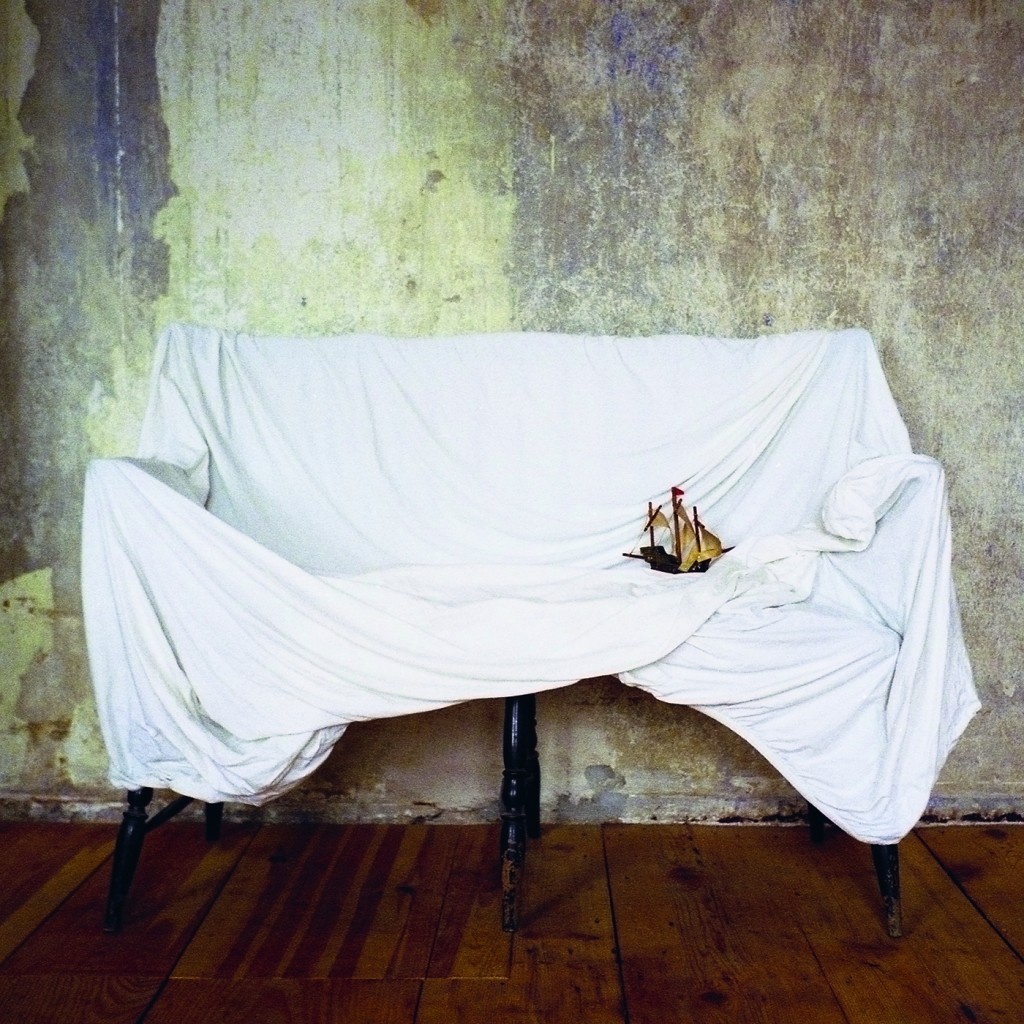
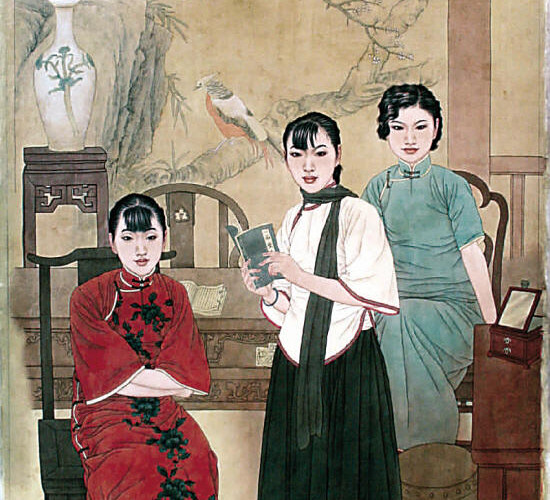
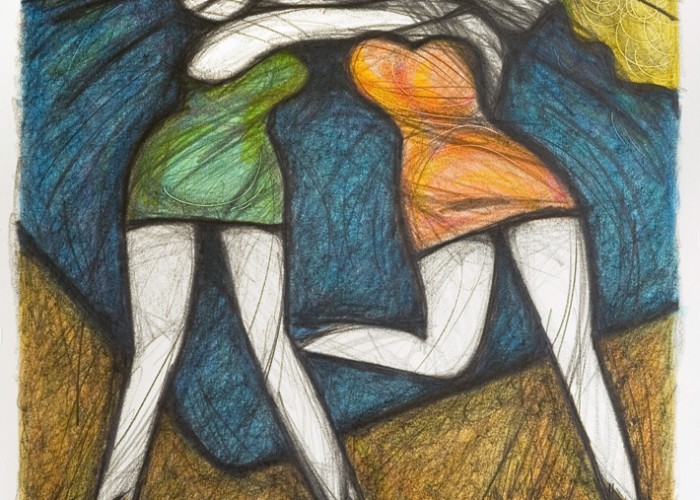
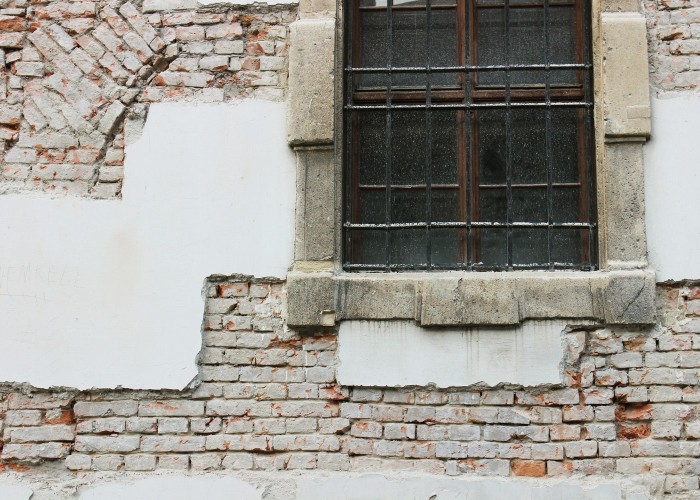
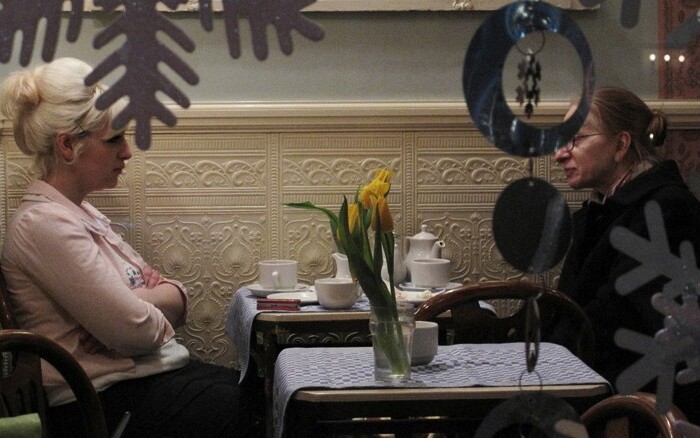



 sending...
sending...